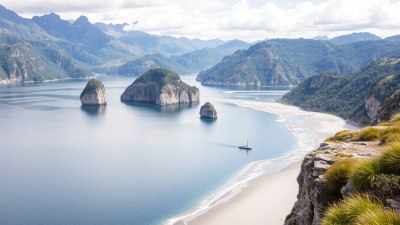Camp Like a Pro Even If You’ve Never Done It Before
Simple, stress-free tips to help first-time campers have an unforgettable outdoor adventure

Image by EugenePetrunin on Freepik
Camping is one of the best ways to disconnect from daily life and experience nature—but if you’ve never done it before, it can feel overwhelming. What gear do you actually need? How do you set up a tent properly? And what if you forget something important? The good news is, camping doesn’t have to be complicated. With a little preparation and the right mindset, you can camp like a pro—even if it’s your first time.
Pick the Right Campsite
Not all campsites are the same, and choosing the right one can make or break your experience. For beginners, start with a developed campsite—one that has basic amenities like bathrooms, running water, and fire pits.
When picking your spot, consider:
- Proximity to facilities: Being close to restrooms can be helpful for first-timers.
- Weather conditions: Avoid areas prone to strong winds or flooding.
- Ease of access: Drive-up campsites are ideal if you’re not ready for backcountry camping.
Only Pack What You Actually Need
It’s easy to overpack, but the key to a smooth camping trip is bringing just the essentials. Stick to these must-haves:
- Tent & Sleeping Gear: A tent with a rainfly, sleeping bag, and sleeping pad for comfort.
- Clothing Layers: Weather can change fast—pack warm layers, even in summer.
- Cooking Essentials: A camp stove or fire starter, lightweight cookware, and reusable utensils.
- Food & Water: Easy-to-cook meals, snacks, and plenty of drinking water.
- First Aid Kit: Include bandages, pain relievers, and any medications you might need.
- Lighting: A headlamp or flashlight with extra batteries.
Setting Up Camp Like a Pro
Once you arrive, setting up camp efficiently will make your trip much more enjoyable. Follow these steps:
1. Pick a flat, dry spot: Avoid slopes, rocky areas, and spots too close to water.
2. Set up your tent first: This should always be your first priority before it gets dark.
3. Keep food stored properly: Use sealed containers or a bear-proof box to prevent unwanted visitors.
4. Create a designated campfire space: If fires are allowed, keep it controlled and never leave it unattended.
Easy Campfire Cooking Tips
Cooking outdoors doesn’t have to be complicated. Simple, no-fuss meals make camping easier.
- Foil Pack Dinners: Wrap meat, veggies, and seasoning in foil and cook it over the fire.
- One-Pot Meals: Chili, pasta, or stir-fry can be cooked in a single pan.
- Campfire Toast & Coffee: A small stovetop percolator or instant coffee makes mornings better.
- Pre-Made Snacks: Granola bars, trail mix, and dried fruit require no cooking at all.
Stay Safe and Leave No Trace
Camping is about enjoying nature, but it’s also important to respect the environment and stay safe. Follow these simple rules:
- Keep your campsite clean: Always pack out what you pack in, leaving no trash behind.
- Follow fire safety guidelines: Make sure your fire is fully out before leaving it unattended.
- Be aware of wildlife: Never feed wild animals or leave food out overnight.
- Check the weather: Know the forecast so you’re prepared for any conditions.
Relax and Enjoy the Experience
The best part of camping is unplugging and enjoying the moment. Whether you’re hiking, stargazing, or just relaxing by the fire, take it all in. Camping is about embracing the outdoors and making memories—not stressing over doing everything perfectly. Even if it’s your first time, you’ll be camping like a pro in no time.











